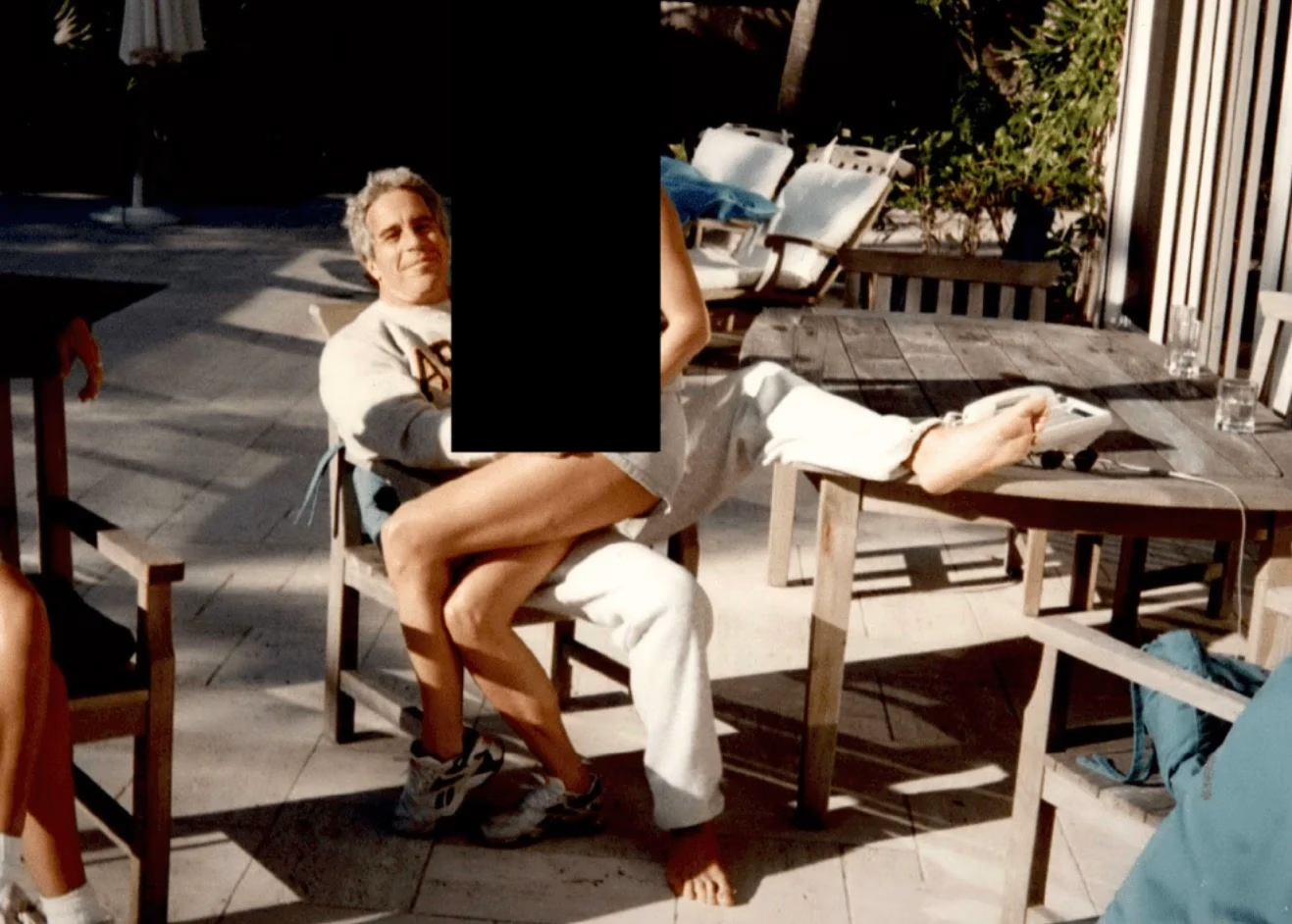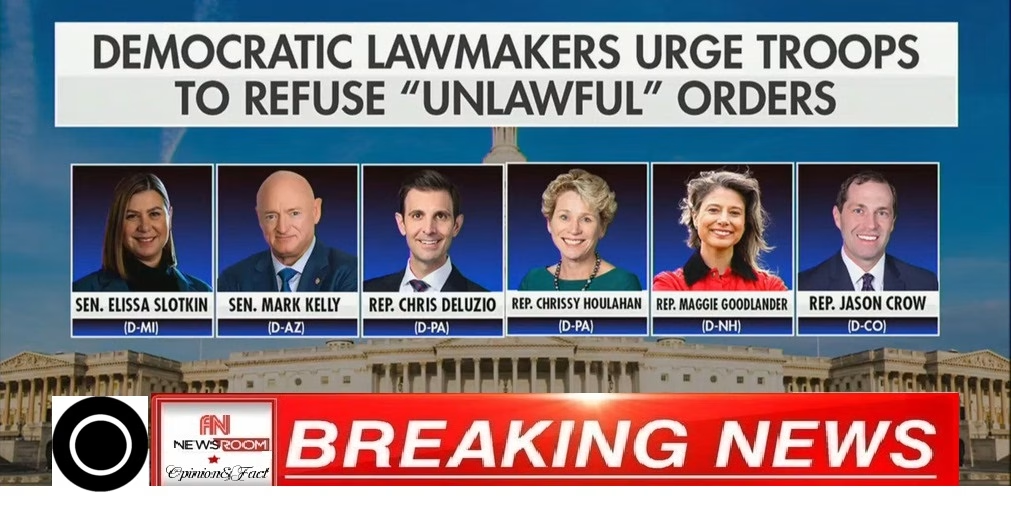By Tony Bruce | Wednesday, November 19, 2025 | 4 min read
As Air Force One touched down after yet another taxpayer-funded weekend getaway to Florida, Donald Trump fired off what may go down as the most startling political reversal of his entire career. It was even more dramatic than his 2016 concession that he had spent years pushing a lie about Barack Obama’s birth certificate. This time, Trump reversed himself with another lie—insisting he’d already said something he had definitely never said.
He claimed on social media, “As I said on Friday night aboard Air Force One to the fake news media, House Republicans should vote to release the Epstein files.” He had said no such thing. That fiction was his awkward attempt to pretend he hadn’t just flipped his position in real time. His tweet wasn’t just a change of direction—it was a spin job designed to make it look like he’d always been heading that way.
But what pushed him there? What pressure was intense enough that Trump felt he had no other escape route but to act like he’d always been on the side of releasing the Epstein documents?
To understand that, you have to reach back 51 years. Three of the most influential Republicans of that era walked into the White House to deliver news Richard Nixon did not want to hear. Barry Goldwater, House Minority Leader John Rhodes, and Senate Minority Leader Hugh Scott sat with the president and told him flatly: he was going to lose impeachment and lose badly, with overwhelming numbers in both chambers—including a tidal wave of votes from his own party.
Standing outside the White House afterward, they told reporters the situation for Nixon was “gloomy” and “distressing.” Less than 24 hours later, Nixon announced he would resign. When party leaders bring that kind of message, there’s no surviving it.
Which brings us to today and whether Senator John Thune—holding the same position Hugh Scott once held—just played the modern version of that role. Trump was already aware that the House had enough momentum to pass a vote to release the Epstein files. By the end of the week, reports indicated close to a hundred House Republicans might join Democrats. That kind of bipartisan show of force becomes impossible for the Senate to ignore.
And Thune, by all indications, saw exactly what was coming. If Democrats called for a Senate vote, it seemed likely they would clear the 60-vote threshold with ease. Thune’s own internal count may have suggested something closer to 90 votes—maybe even a full hundred. That would mean Trump couldn’t rely on the Senate to bail him out. A bill releasing the files would reach his desk, likely with a veto-proof majority behind it.
House Speaker Mike Johnson didn’t have the political standing to deliver that kind of warning. Only Thune could. Whether he said it directly to Trump or through an intermediary is something historians or future reporting will reveal. But the message was unmistakable: Trump couldn’t stop this vote.
And if Trump thought the Senate might protect him, he would have stood firm in his long-held position that the Epstein materials should never see daylight.
The Justice Department—under Trump’s leadership—had formally declared the Epstein case closed on July 7th. Their statement insisted that investigators found nothing that warranted action against uncharged third parties and that releasing the files would be “inappropriate.” Previous administrations couldn’t release the documents because the prosecution of Epstein and Ghislaine Maxwell was still underway. Maxwell’s appeal wasn’t resolved until long after Trump took office, and the DOJ only closed the entire case this year.
Trump and his legal team surely believed their July 7th position would hold for the remainder of his presidency, maybe even beyond. But the stance collapsed after just 132 days.
Once Trump sensed he was cornered, he announced Republicans should vote to release the files. Today, asked whether he would sign the bill if it reached his desk, he swerved into familiar deflection—insisting he had “nothing to do with Epstein” and trying to paint Democrats as the ones with personal ties to the disgraced financier. The reality, of course, is that Trump spent more recorded time with Epstein than any political figure mentioned in the known documents. Epstein himself once said Trump was his closest friend for a decade.
Pressed again, Trump said he’d sign whatever Congress sent him, though he cloaked that answer in another attempt to shift blame and claim Democrats were the ones truly worried about the files.
Then, in a flurry of posts, he tossed out Bill Clinton’s name with accusations that don’t match any official records. Epstein himself wrote that Clinton never visited the island. The only flight logs show two international trips with multiple stops, nothing close to the extreme picture Trump painted.
No matter how hard he tries to redirect the narrative, the Epstein files are inseparable from Trump. Even some of his strongest allies have now turned on him. Marjorie Taylor Greene, once among his most vocal supporters, accused him of lying and said his attacks have made her a target. Thomas Massie has openly challenged Trump as well, saying Trump’s sudden interest in new investigations is likely a tactic to keep the records sealed.
Massie warned that Trump’s Justice Department could weaponize new investigations to claim that the files can’t be released because they’re part of an “ongoing probe.” That concern appears well-founded—Trump has already suggested launching new inquiries into Clinton and others, despite the DOJ’s written conclusion that there is no evidence warranting such investigations.
Democratic Congressman Robert Garcia agrees that Trump is setting up a smokescreen. Garcia says his committee has other legal avenues to pursue the documents and insists Trump is trying to protect himself and wealthy allies at the expense of the truth.
Remarkably, Garcia believes the House could even reach a unanimous vote—a prospect few would have imagined until Trump began panicking last week. And with such a vote, the Senate would have little choice but to act.
Garcia also pointed out something Trump doesn’t want anyone to remember: he doesn’t need a congressional vote to release the files. He could do it today. He simply will not.
And that, more than anything, reveals where all of this truly leads.
Because if Trump regains control of the Justice Department, it won’t operate as an institution of law—it will serve as his personal revenge machine. That’s how former DOJ officials now describe it, with one saying bluntly, “I wouldn’t even call it the Justice Department anymore. It has become Trump’s personal law firm.”
When Silence Becomes Complicity: Trump’s Epstein And Maxwell Problem Returns
Would you trust Elon Musk — or anyone — with control over your Optimus workers?
The Humiliated Duck: How Donald Trump’s Era of Untouchable Power Finally Crumbled
Okocha Was Better Than Beckham—But White Privilege Wrote the Headlines
PRESS RELEASE: Tesla Optimus Gen 2: Elon Musk’s $1 Trillion Army of Programmable Workers






